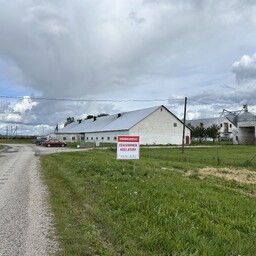In Estonia, the number of pigs infected and culled due to African swine fever has remained unchanged. Currently, there are a total of 55,000 infected and culled pigs.
Two Estonian companies are handling the disposal of culled pigs. They are no longer searching for new methods to process the carcasses.
"Fortunately, the number of infected pigs remains the same as it was a week ago," said Olev Kalda, head of the Animal Health Department at PTA. Currently, there are ten outbreaks known in domestic pigs.
EKSEKO has a total of 27,000 sick pigs. Of these, approximately 4,500 pigs have been culled over eight days.
The culling at EKSEKO is proceeding as planned. It is organized by the company AS Vireen. The disposal of culled animals is carried out by two companies: AS Vireen and AS Atria Eesti.
Atria can process up to 24 tons of pigs per day. Vireen's workload has increased. They are now processing more animals per day.
Processing carcasses takes a lot of time. Additional disposal methods have been sought, but Lithuania has refused to accept the pigs.
No decision has been made yet regarding the burial of pigs. A burial site in Põhja-Sakala has been prepared, but it has not been decided whether to start burying.
When a decision on burial will be made is still unknown. It depends on the situation at EKSEKO.
There are no options to send culled pigs to another country. Discussions with neighboring countries have already taken place.
PTA has not yet provided more details about the test at the Iru power plant. The test has taken place, but the results are still under discussion.
PTA is not considering more alternative methods for disposing of pigs.
Compensation to farms is linked to compliance with biosecurity requirements. Some companies have received compensation, others have not.
African swine fever is a highly contagious disease. It does not infect other animals or humans, but they can transmit the virus. The virus can persist in the environment for a long time.

